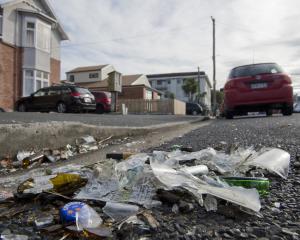
The move has been put down to a combination of falling enrolments, "market confusion" and the introduction of programmes that reduced the need for a separate applied science focus.
University sciences pro-vice-chancellor Prof Richard Barker said no job losses were planned as a result of changes.
The vast majority of the subjects would be transferred to the bachelor of science (BSc).
"But four majors will be deleted at some point in the future and will not be offered within the BSc — applied geology, computational modelling, consumer food science and molecular biotechnology."
Students in the bachelor of applied science (BAppSc) and the bachelor of applied science with honours were contacted yesterday and advised a decision had been made to discontinue these degrees.
Almost 600 students were enrolled in the programmes and they would be able to complete their courses.
However, no new enrolments would be accepted in applied science degrees.
"We undertook market research and consulted with some students and staff about the proposed changes," Prof Barker said.
"The feedback strongly endorsed the proposal."
The BAppSc was originally a four-year degree that sought to combine interdisciplinary subjects from the Division of Sciences and elsewhere.
Applied science was aimed at helping graduates become innovative thinkers with an entrepreneurial spirit.
Prof Barker said the creation of interdivisional degrees such as the bachelor of arts and science and bachelor of commerce and science had taken away "much of the unique structure of the BAppSc".
Some majors had falling enrolments and there was market confusion between the BAppSc and BSc, he said.
For the applied science degree, students were required to major in at least one of a list of subjects, which included agricultural innovation; applied geology; aquaculture and fisheries; computational modelling; consumer food science; data science; energy management; environmental management; forensic analytical science; geographic information systems; molecular biotechnology; physical education, activity and health; software engineering; and sport and exercise nutrition.
The BAppSc was not the only way to study these subjects, and the majority of major subjects would be transferred to the bachelor of science programme.
Postgraduate qualifications in the various applied science programmes would continue to be offered.
The university said the degree structure had been "confusing for students and staff".
University of Otago geology department acting head Prof James White said the announcement was not a surprise.
"It’s been in the wind for a while now."
He said he was "all right" with the change, because it would create new opportunities for the department and its students.
"We have some plans to use the disappearance of that degree to make space for something different in earth sciences.
"So it’s probably going to be a net positive for us."












